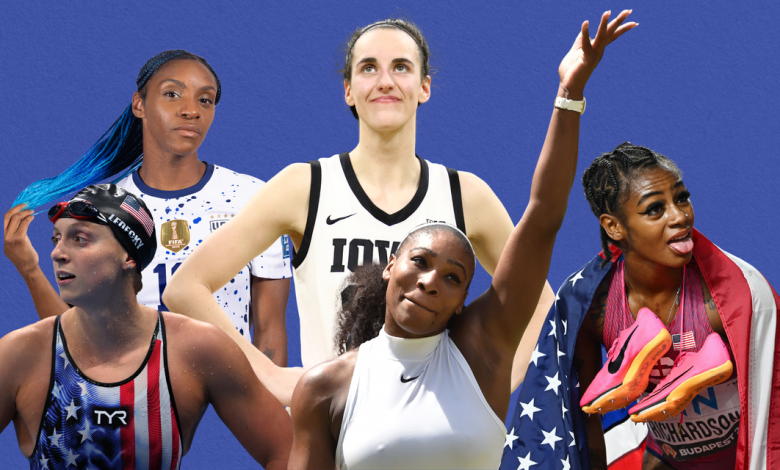We Asked a Psychologist Why So Many Average Men Think They Can Beat a Top Female Athlete in Her Sport

An amateur linksman offers unsolicited swing advice—to a woman who’s a pro golfer and coach. A non-runner is convinced he can smoke a Division I track athlete…until she handily defeats him during one rep of a longer workout. And less than a month after winning an Olympic bronze medal, Molly Seidel got some marathon advice from a seatmate on her plane. She should train high-mileage, he told her. He even pulled up a spreadsheet of her own training to show her how it should be done.
While women’s sports might finally be gaining more of the respect and attention they deserve—this year, the women’s NCAA basketball championship drew four million more viewers than the men’s, and Caitlin Clark’s jersey became the top-seller for draft picks, ever—high-level female athletes all too commonly still must contend with folks who haven’t gotten the message. Random dudes continue to try to teach them about their sport or, perhaps even worse, believe they could beat them at it. (Recall that, in 2019, one in eight men surveyed thought that, if they played their very best tennis, they could score a point off Serena Williams. Yes, that Serena Williams, who won 23 Grand Slam titles and four Olympic gold medals.)
Perhaps the most glaring examples of this make the news, but it’s likely occurring even more often than we know. That made us wonder what, exactly, is behind these cases of misplaced bravado and blatant mansplaining. So we turned to a professional who would know: Mitch Abrams, PsyD, a sport and clinical psychologist who specializes in anger management, violence prevention, and performance enhancement for athletes.
First of all, there’s no question this confidence is unjustified at best: “Is a pro runner, pro triathlete, pro tennis player, pro basketball player going to wipe the floor with the average guy? Absolutely,” Dr. Abrams, who’s worked with athletes from youth up to collegiate and pro levels, tells SELF. The reason some grown men believe otherwise—and then speak up about it—may stem from a combination of gender stereotypes and, paradoxically, a lack of confidence, he says.
From childhood, little boys are typically taught not to doubt themselves, regardless of how much they still have to learn—they’re coached to speak up and show off what they do know. But underneath it, they may have low self-esteem, “because everyone tells them they’re supposed to know what they’re doing, and they have no freaking clue,” Dr. Abrams says. But since they can’t show weakness, they puff out their chests to prove themselves, especially in areas like sports in which they’re “supposed” to have mastery. It starts young, and for some, never stops. “There are a lot of boys who turn into men that are just developmentally adolescents,” he says.
What’s more, lots of those men already spend time chest-puffing and arguing on social media and in the comments section of sports websites. There, anonymity or at least physical distance gives people the freedom to be discriminatory (or worse), and bad opinions are reinforced and rewarded with likes and clicks. These bad takes can then spill out into real life.



